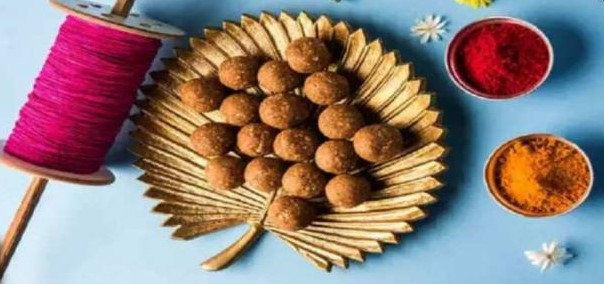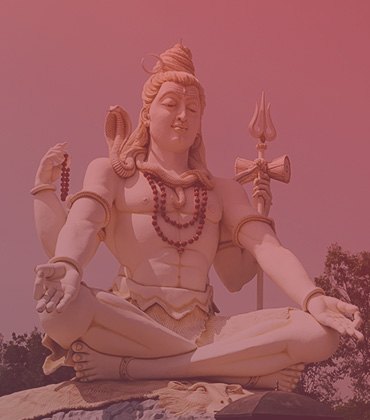Makar Sankranti Festival
Makar Sankranti has great significance among hindus. This day is celebrated with great zeal across the country. People take holy bath in the sacred river ganga on particular day. Makar sankranti festival is dedicated to worship lord surya. People offer Prayer to Lord surya. On this auspicious day, sun changes its position and travel to Capricorn from Saggitarius. People do charity on this particular day and seeks blessing from lord.
Each year, on the 14th of January, India welcomes a wave of festive cheer across the country. Somewhere between hues of yellow and the blue sky enlivened with colourful kites, the country celebrates an end and a new beginning with Makar Sankranti – the Harvest Festival.

What Is Makar Sankranti & Why Is It Celebrated?
In the Vedas, Sankranti deciphers the movement of the Sun from one rashi (constellation of the zodiac) to the next. Hence, there are 12 Sankrantis in a year. Out of these, the Makar Sankranti also dubbed ‘Poush Sankranti’ is considered the most auspicious and it is one of the few Hindu festivals that is aligned with the solar cycle. Makar Sankranti importance isn’t just limited to its religious significance. Infact, the festival also marks the beginning of the harvest season when new crops are worshipped and shared with delight.
It heralds a change in season, as from this day the Sun begins its movement from Dakshinayana (South) to Uttarayana (North) hemisphere, marking the official end of Winters. Both a religious occasion and a seasonal observance, the occasion also marks the sun’s transit into Makar Raashi (the Capricorn zodiac sign).
Traditional Connotation & Significance Of Makar Sankranti As Per Ayurveda
According to Hindu scriptures, on the day of Makar Sankranti, Lord Vishnu defeated the terror wreaked by demons by severing their heads and burying them under a mountain, symbolizing the end of negativities whilst giving way to righteousness and good intentions to live well and prosper.
Therefore, this day is very conducive for Sadhana- the spiritual practice or meditation as the environment is full of ‘Chaitanya’ meaning ‘cosmic intelligence’.
The Morning Ritual
In the ancient scriptures, it is suggested that one should wake up just before sunrise and take a bath on the day of Makar Sankranti, for a positive and auspicious start to the day. It is also recommended to mix a small amount of Til or Sesame Seeds into your bathing water. After bathing, one must offer prayers to the Sun by chanting the Gayatri Mantra and doing Argya- offering water to the Sun.
Which God Is Worshipped On Makar Sankranti?
While there are plenty of stories about Makar Sankranti and its religious roots, it is said that the Sun stands for “Pratyaksha-Braham”, “a manifestation of the absolute”, bestowing knowledge, spiritual light, and wisdom, and hence Makar Sankranti is a special festival across the country, where Surya- the Sun God is worshipped and offered gratitude and prayers.
Festive Rituals: What Do We Do On Makar Sankranti?
Food
Makar Sankranti is a time to consume freshly harvested food grains, which are first offered to the Gods and then eaten. Ayurveda suggests eating Khichdi since it is a light and easily digestible dish. The connotation of eating Khichdi is that it prompts the body to prepare for the change in season, from the cold Winter breeze to the forthcoming warmth of Spring. As the temperature fluctuates from dry cool to surprisingly warm, the body consequentially becomes susceptible to imbalances. Khichdi thus makes for the perfect dish to quench the appetite whilst providing the body with essential nutrition.
Apart from its benefits for your health, cooking and eating Khichdi on Makar Sankranti is symbolic of unity, since the dish is cooked in a single pot by uniting all the ingredients including freshly harvested rice, lentils, seasonal vegetables, and spices, together. It signifies the process of life and regeneration, which further indicates the beginning of the new harvest year.

Ayurveda also suggests taking Sesame Seeds and Jaggery on this divine day. Sankranti and Til (Sesame) are synonymous as the festival is also commonly known as ‘Til Sankranti’. Sesame seeds have the ability to absorb negativity and improve the ‘Sattva’ – purity, goodness, and harmony, which in turn facilitate spiritual practice.
Kite Flying

One of the most common attractions of Poush Sankranti especially in the Gujarat region is kite flying. The sound of ‘Kai Po Che’ against the lip-smacking sweets laid out on the terrace is almost an involuntary visual that comes to mind when thinking of Makar Sankranti. It is also believed that the kite-flying ritual came into play as a practice of good health. The idea was to expose oneself to the first light of the early morning forthcoming Summer sun and douse in the goodness of Vitamin D.
The Atma Jyoti Sanatan seva foundation family wishes you a very happy Makar Sankranti! On this auspicious occasion take a moment to ponder over the past, wash off the negativity, and pave the way for a new light to enter your life.
FAQs
What Is The Meaning Of Makar Sankranti?
For those who might be curious to learn Makar Sankranti meaning and its significance, ‘Makar’ means ‘Capricorn’ and the movement of the sun into ‘Makara Raashi’ or the ‘Zodiac of Capricorn’ is called Makar Sankranti.
What Do People Wear On Makar Sankranti?
The traditional Indian sari is the typical choice of ensemble for Makar Sankranti, of which yellow tones and luxurious Silk drapes are the more popular choices.
When Is Makar Sankranti In 2023?
This year, Makar Sankranti will fall on Sunday, January 15, 2023.
Why Do We Celebrate Makar Sankranti?
Celebrated in various regions of India, Makar Sankranti marks the new beginning when the Sun transitions into longer days. Makar Sankranti is also called the harvest festival.
Is It Important To Take A Bath On Makar Sankranti?
On the occasion of Makar Sankranti, people indulge in a Holy Bath by taking a dip in the auspicious rivers including Ganga, Yamuna et al. It is also recommended to consume food, post you bathe.
Do And Don’ts On Makar Sankranti?
Flying a kite, taking a bath, donating clothes and food, indulging in festivities, exchanging gifts, etc. are some of the things that people often do during Makar Sankranti.
Can You Wash Your Hair On Makar Sankranti?
Depending on your religious beliefs, you may or may not wash your hair.
What Can Be Gifted On Makar Sankranti?
Apart from Indian sweets, gift boxes are a good option to gift to friends and family.




very good aricle